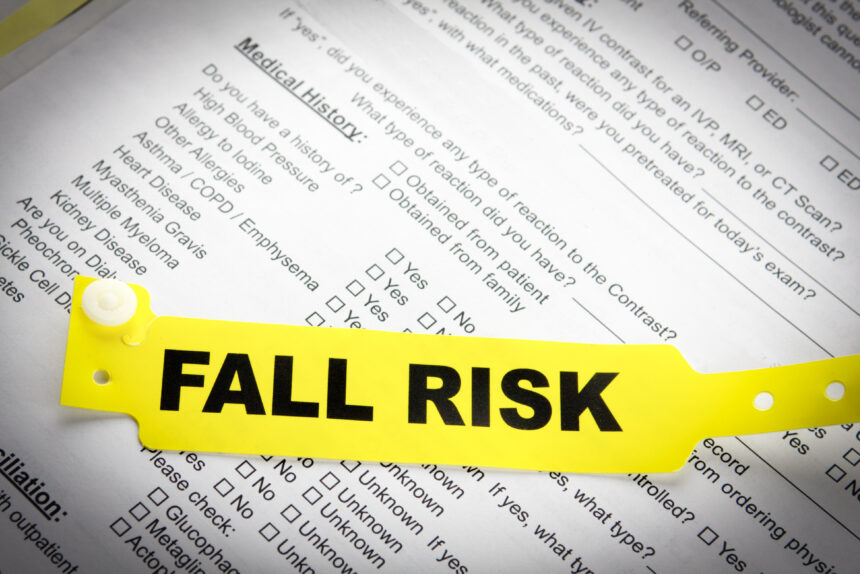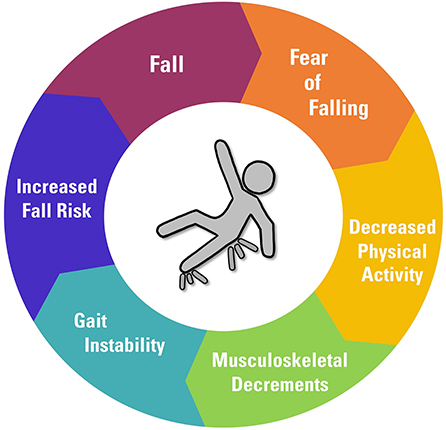10 Simple Techniques For Dementia Fall Risk
Wiki Article
Not known Facts About Dementia Fall Risk
Table of ContentsAll About Dementia Fall RiskDementia Fall Risk Fundamentals ExplainedThe 20-Second Trick For Dementia Fall Risk9 Simple Techniques For Dementia Fall RiskExcitement About Dementia Fall Risk
The FRAT has 3 areas: fall risk condition, threat factor checklist, and action plan. An Autumn Threat Standing includes data about history of current drops, drugs, emotional and cognitive status of the client - Dementia Fall Risk.If the individual ratings on a threat factor, the corresponding number of points are counted to the client's autumn danger rating in package to the much right. If a person's autumn threat score completes five or higher, the individual is at high threat for falls. If the client ratings only four points or lower, they are still at some risk of falling, and the nurse ought to use their ideal clinical analysis to handle all autumn danger variables as part of an alternative care plan.
These standard approaches, in basic, help establish a risk-free environment that decreases unexpected drops and defines core preventive procedures for all people. Indications are essential for clients at threat for drops.
The smart Trick of Dementia Fall Risk That Nobody is Talking About
Wristbands should consist of the person's last and initial name, day of birth, and NHS number in the UK. Just red shade must be utilized to indicate special patient status.
Items that are too far might need the individual to connect or ambulate unnecessarily and can potentially be a threat or add to drops. Helps prevent the patient from heading out of bed with no help. Nurses react to fallers' telephone call lights quicker than they do to lights initiated by non-fallers.
Aesthetic problems can considerably cause falls. Hip pads, when worn properly, might minimize a hip fracture when autumn occurs. Maintaining the beds closer to the flooring reduces the threat of falls and serious injury. Putting the cushion on the floor substantially minimizes fall threat in some health care settings. Reduced beds are developed to minimize the distance a person drops after relocating out of bed.
About Dementia Fall Risk
Patients who are tall and with weak leg muscular tissues that try to sit on the bed from a standing setting are most likely to drop onto the bed because it's as well low for them to decrease themselves securely. Additionally, if a high client efforts to get up from a reduced bed without assistance, the client is likely to drop back down onto the bed or miss out on the bed and fall onto the floor.They're made to advertise prompt rescue, not to avoid falls from bed. Aside from bed alarm systems, raised guidance for high-risk clients also might assist stop falls.

People with an evasion stride increase autumn chances drastically. To reduce autumn danger, footwear ought to be with a little to no heel, slim soles with slip-resistant tread, and sustain the ankles. Recommend person to use nonskid socks to stop the feet from sliding upon standing. Motivate patients to put on proper, well-fitting shoesnot nonskid socks for ambulation.
The Ultimate Guide To Dementia Fall Risk
Patients, especially older adults, have actually lowered visual capacity. Lighting an unknown environment helps boost visibility if the client should rise in the evening. In a study, homes with appropriate lighting record fewer falls (Ramulu et al., 2021). Improvement in illumination in the house might reduce autumn prices in older grownups (Dementia Fall Risk). Using gait belts by all wellness care carriers can promote security when helping individuals with transfers from bed to chair.
Sitters are efficient for ensuring a secure, secured, and secure atmosphere. Researches showed extremely low-certainty proof that sitters decrease fall risk in severe care hospitals and just moderate-certainty that alternatives like video tracking can decrease caretaker usage without raising fall threat, suggesting that caretakers are not as useful as at first believed (Greely et al., 2020).
Getting My Dementia Fall Risk To Work

Boosted physical fitness lowers the threat for drops and limits injury that is suffered when autumn takes place. Land and water-based workout programs may be likewise beneficial on equilibrium and stride and thereby decrease the threat for falls. Water exercise might contribute a positive advantage on balance and gait for ladies 65 years and older.
Chair Rise Workout is a basic sit-to-stand exercise that assists strengthen content the muscular tissues in the upper legs and buttocks and enhances movement and self-reliance. The objective is to do Chair Surge exercises without utilizing hands as the client comes to be more powerful. See sources section for an in-depth instruction on how to perform Chair Rise exercise.
Report this wiki page